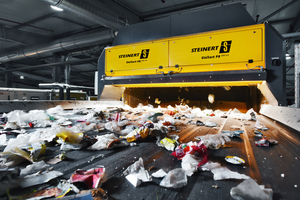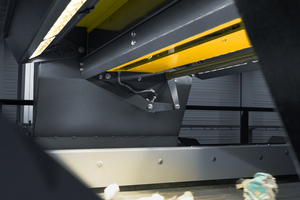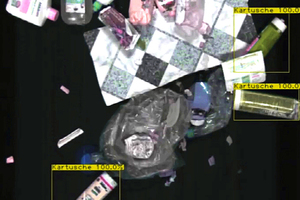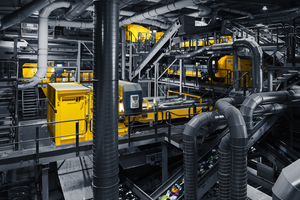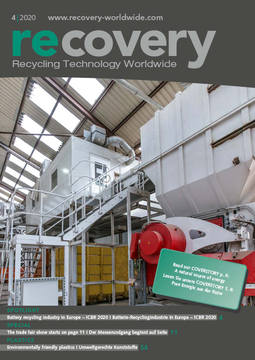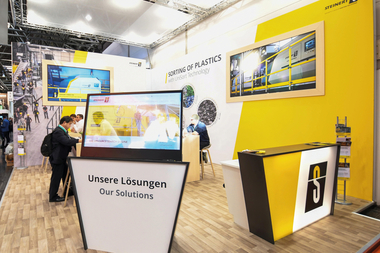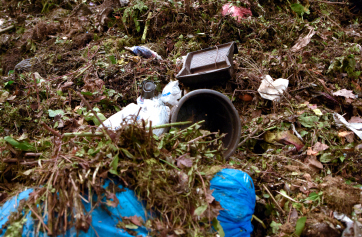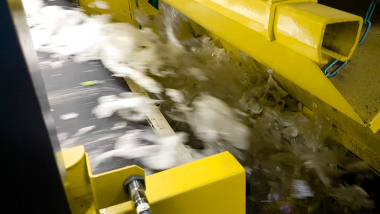Artificial Intelligence-supported software and hardware upgrades
The competence in mass data processing since the hyperspectral imaging (HSI) technology was introduced in 2012 forms the basis for the Intelligent Object Identifier, an Artificial Intelligence (AI)-supported object detection system for sorting machines.
Alongside a whole host of detail improvements, the latest iteration features a design which is much easier to maintain and delivers advanced sorting results. Dynamic calibration monitors the spectrum of the belt lighting and an optional automatic white balance reduces the intensity of maintenance, thereby improving staff management and making new levels of flexibility possible.
This in turn enables users to respond flexibly to changing material flows and recognise but also most importantly tap into new potentials.

